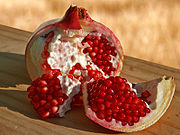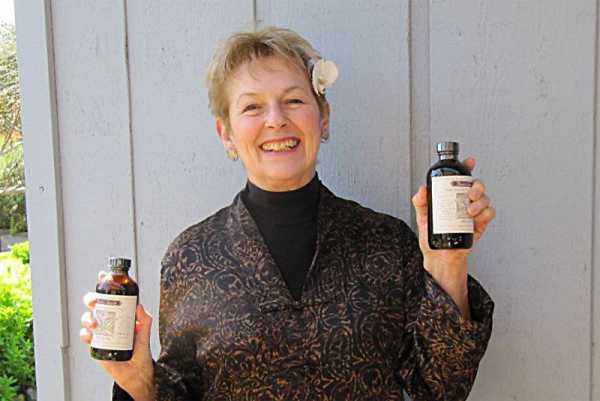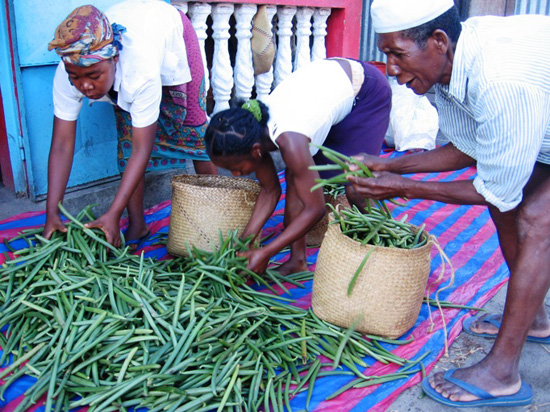
I'm amazed at how superior your vanilla is!
– Des, The Grommet

Pomegranate, Punica gran, is an ancient fruit native to Persia (Iran). It is both a tropical and sub-tropical plant that has been cultivated and naturalized over the whole Mediterranean region and the Caucasus for millinea. It is widely cultivated throughout Asia, parts of Southeast Asia, Malasia, the East Indies and tropical Africa. In the 1700s it was brought to Latin America and California by Spanish settlers.
The name “pomegranate” derives from Latin pomum (apple) and granatus (seeded). This has influenced the common name for pomegranate in many languages. The word “Punica” means Phoenecian as the Phoenecians were responsible for widely spreading its cultivation. It has played a symbolic role in myths and legends worldwide and is mentioned in early texts from several of the world’s major religions.
The pomegranate tree is considered a shrub or small tree, growing to about 25 feet. The flowers are bright red. The fruit is red or yellowish-white, has a thick rind and contains roughly 600 seeds per fruit. The seeds (called arils) and surrounding pulp range in color from white to deep red. The seeds are the edible fruit of the pomegranate and are technically berries. Pomegranates are drought tolerant and can be grown in dry areas with either a Mediterranean winter rainfall climate or a summer rainfall climate. They can tolerate temperatures as low as 14 degrees, but do not do well in year-round wet climates.
 Pomegranates are used for their juice, which is acidic due to tannins. The arils are added to salads or eaten by themselves. In Asian cultures, pomegranates are consumed as juice, as well as in savory soups, stews and curries. The juice is also cooked down to make a thick pomegranate molasses. Pomegranate seeds are used in desserts, relishes, mixed with avocado as a dip, made into Grenadine syrup for beverages, and more. Pomegranates are used in Latin American cuisine as well.
Pomegranates are used for their juice, which is acidic due to tannins. The arils are added to salads or eaten by themselves. In Asian cultures, pomegranates are consumed as juice, as well as in savory soups, stews and curries. The juice is also cooked down to make a thick pomegranate molasses. Pomegranate seeds are used in desserts, relishes, mixed with avocado as a dip, made into Grenadine syrup for beverages, and more. Pomegranates are used in Latin American cuisine as well.
The fruits contain vitamins C and B5, and are rich in antioxidants and numerous phytochemicals. In laboratory research they have shown promise in reducing the risk of heart disease, and pomegranate seed oil’s estrogen-blocking capabilities have been found to kill breast cancer cells in vitro. Several studies are underway to determine how pomegrantes can be used in future medical applications.
I was given a small bottle of Rain’s Choice in a gift basket and I have been hooked ever since. The flavor makes all of my baking so much better! I will never use grocery store vanilla again!


© 2021. All Rights Reserved
Designed/Developed by Kat & Mouse